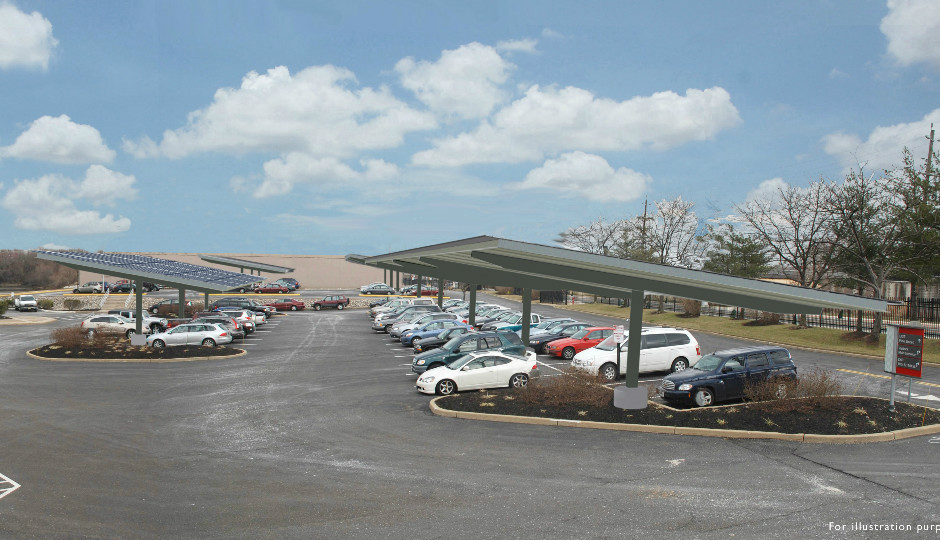Campbell Soup Breaks Ground on Solar Power Project at Camden HQ

Project rendering. Photo courtesy of Campbell Soup Company.
Local chicken noodle titan Campbell Soup Company may be known for its classic red label, but by next fall, the company will be leaning green.
On Wednesday, workers at Campbell’s Camden, NJ World Headquarters broke ground on the company’s third solar installation project. The project, developed by BNB Renewable Energy Holdings, will furnish the headquarters with a total of 4.4 megawatts (MW) of SunPower paneling.
The solar array will span Campbell’s 38-acre campus, as well as a newly purchased 4.5-acre remediated brownfield nearby, incorporating otherwise unusable land into surface area that will help to harness a total of more than 5 million kilowatt hours of electricity per year.
“We see a bright future for other Fortune 500 companies who follow Campbell’s lead and turn to renewable energy to stabilize energy costs and reap rewards from the sun,” said Matthew Baird, managing partner of BNB. Campbell’s partnership with BNB has already yielded success with both a 9.8 MW system at Campbell’s Napoleon, Ohio facility, as well as a smaller 1MW system at their Pepperidge Farm bakery in Bloomfield, Connecticut.
With a 20-year power purchasing agreement (PPA) in place, the completion of the project is guaranteed to provide Campbell with a lasting renewable energy solution for less than the cost of traditional electricity.
“This project contributes clean energy to the local grid and demonstrates to our community the viability of renewable energy sources” said Campbell vice president of global engineering, Jim Prunesti, in a statement.
The term debt for the project is being financed through Public Service Electric & Gas’ (PSE&G) Solar Loan Program, though the company has run into some trouble in the past few months, beginning with a class action lawsuit filed in March, which claimed that the energy company was unlawfully overcharging some of its solar customers.
Follow @HaleySWeiss on Twitter.


